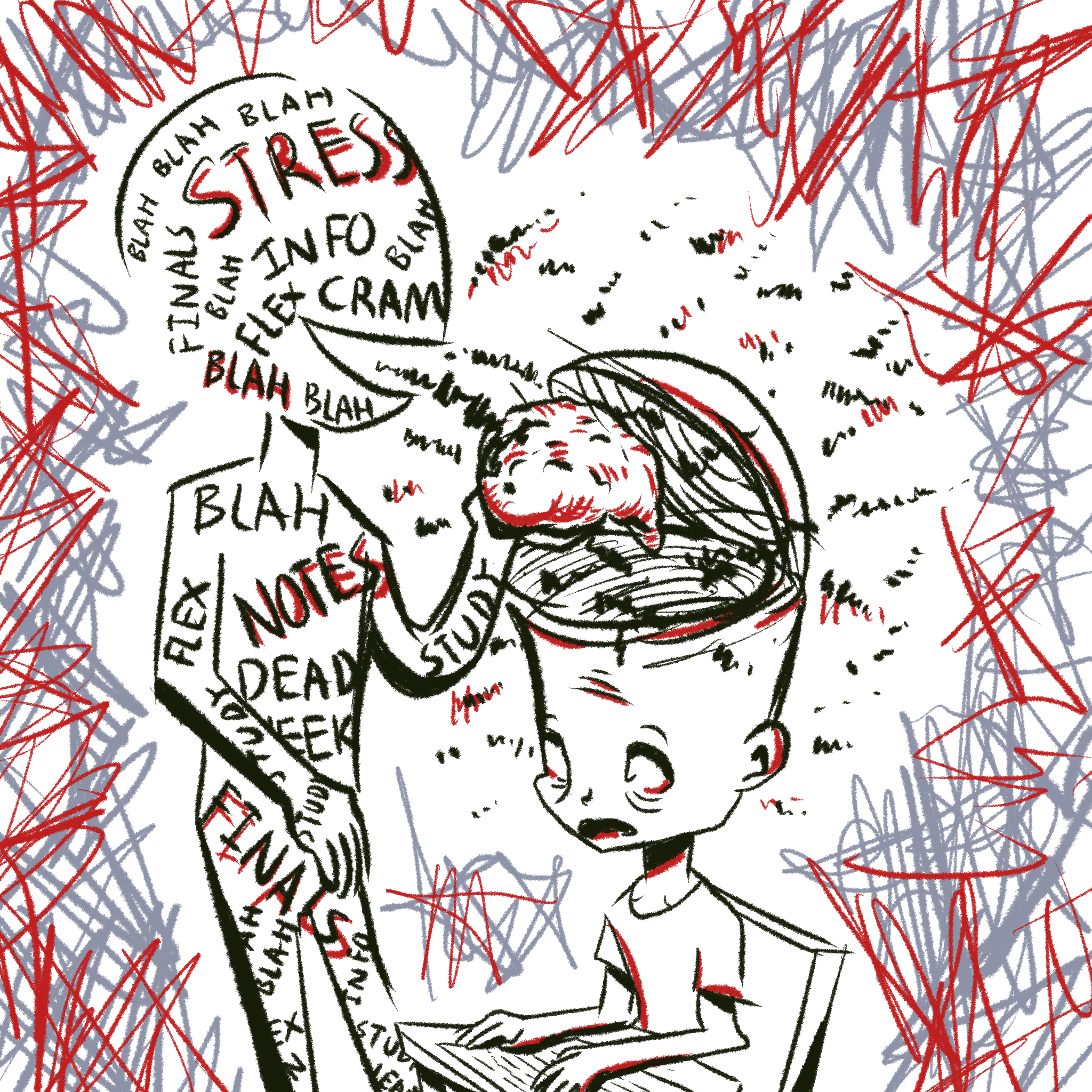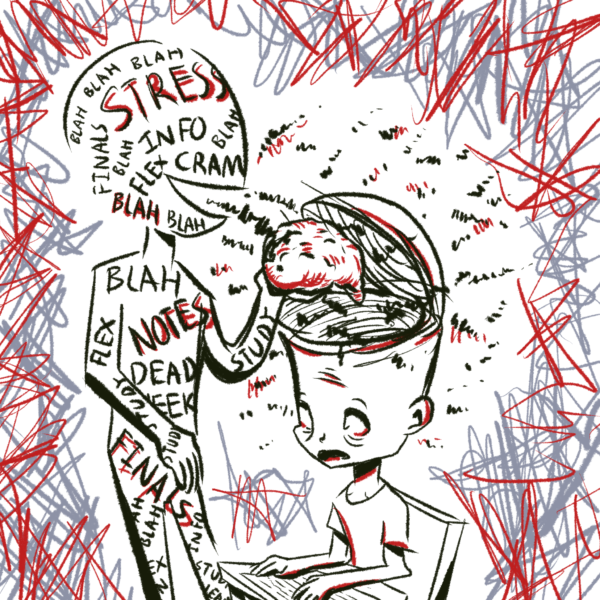

The week before finals, widely referred to as “dead week” at Aragon, is a time usually meant for reviewing and studying for final exams. This year, there will be a “stress less” week spanning from Dec. 6 to Dec. 10.
“[This week] can be a really nice time for the teacher to organize information and to help kids understand what they have seen before,” said history teacher Heather Sadlon. “They’ve got six or seven classes so all this information is floating around their heads. It can help to use that class time effectively [so] they understand the information.”
According to AVID and English teacher Tiffany Chiaro, the San Mateo Union High School District encourages teachers to not introduce new information during the week before finals, but instead review what they have covered in the semester. The final exam block for each class is two hours long and exams vary in format for each course.
Although the tests are weighted differently depending on the course, junior Andrea San Miguel feels there is an added pressure when studying for final exams.
“Now that we’re in-person we can make preparing for finals easier and more convenient”
“For chapter unit tests, you just need to know that unit or that chapter [and] you can focus on that one small section,” San Miguel said. “But finals are the whole semester. You have to go back and [know] the things that you forgot. Then [there are] also final grades which, although some teachers don’t have them weighted as much as chapter or unit tests, they almost feel like they weigh more on the grades.”
Last year, all winter finals were taken virtually and those who were attending school in person during the spring semester could choose whether or not to take their exams in person. Teachers had to adapt their usual format of their exams to fit the digital era. Students could only get support from their teachers through Zoom and didn’t have the usual studying environment they would have in a regular year.
“[Dead week’s] a chance … to get late work in and a last chance to get grades up for the semester”
“I feel like dead week last year was okay,” said sophomore Nathan Yin. “There can definitely be improvements in some areas such as [having] more time and more guidance [since] the student teacher connection wasn’t as strong [due to] distance learning. So I feel like now that we’re in person we can make preparing for finals easier and more convenient.”
During dead week, students usually utilize FlexTime, Quizlet, after-school tutoring, study groups and other resources to prepare for their exams. While these ways are efficient, Chiaro believes that students can improve the way they review.
“I don’t often see a lot of students interacting and engaging with the notes that they’ve taken,” Chiaro said. “Maybe they’ll reread the textbook or maybe they will reread their notes, but they won’t retain any of that information unless they interact with their notes [by marking them up]. [A] benefit of the AVID note taking system [is that it] requires students to repeatedly interact with their notes. I think all students could benefit from that process.”
While most teachers try to follow dead week guidelines by giving students resources to study for their upcoming exam, some students feel that it’s not enough or even too much at times. Trying to study for all of their classes in a week can feel overwhelming to students, especially when they receive more homework or various studying resources to review.
“I don’t often see a lot of students interacting and engaging with the notes that they’ve taken”
“I was told that … teachers are not allowed to give homework during … dead week,” San Miguel said. “[But] it’s not only study guides [they hand out]. I found that in previous years they still [teach you things during dead week]. The name dead week is supposed to be dead. It should be nothing. You should be studying, studying, studying. The week feels more like being set in stone and dedicated to studying instead of stressing less.”
During this week, the leadership classes have also implemented a “stress less” week with activities to help students destress each day of the week. Link Crew, focusing on transitioning freshmen into high school, hosts annual “Cocoa and Cram” days, allowing students to get extra help from their peers when studying. After-school tutoring and Tutor Club give support to students and pair them up with peers in order to help students study during dead week.
“I wish in some ways, we wouldn’t call it [dead week], because it makes it sound like there’s nothing going on, and we’re not doing anything,” said math teacher Craig Sipple. “It’s quite the opposite. For a lot of people it’s a chance to get caught up with missing assignments, to get late work in and a last chance to get grades up for the semester.”
This year, most students will be experiencing their first in-person finals and others will have to familiarize themselves again with the schedule’s structure. Taking full advantage of dead week and studying ahead of time will increase the likelihood of students not only stressing less but ending the year on a good note.



